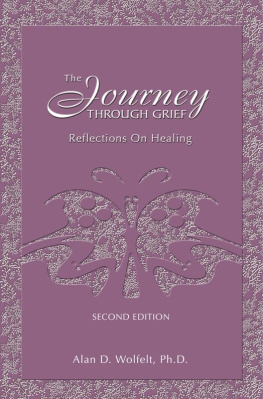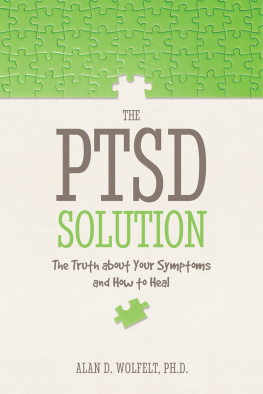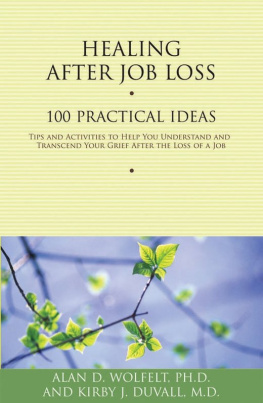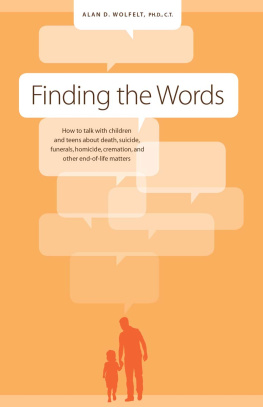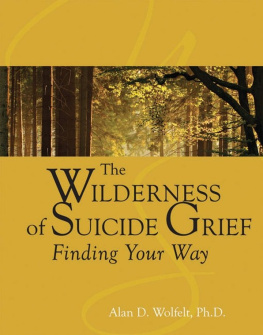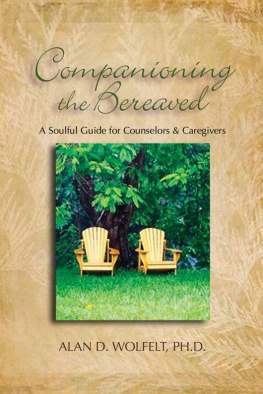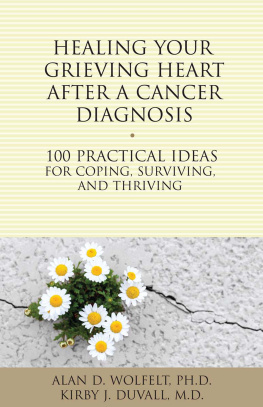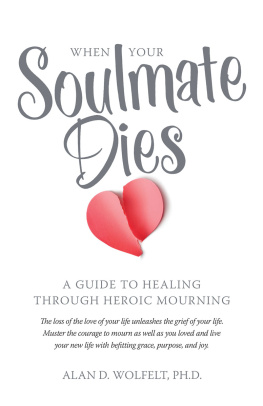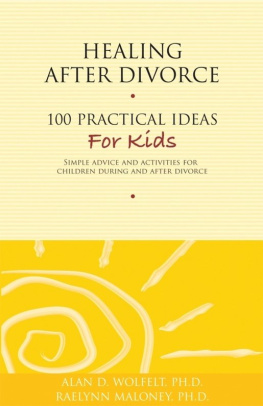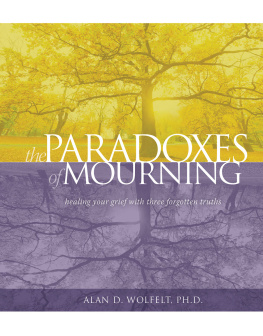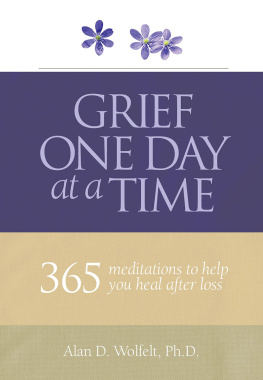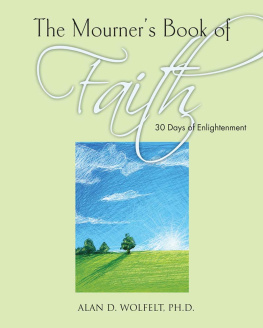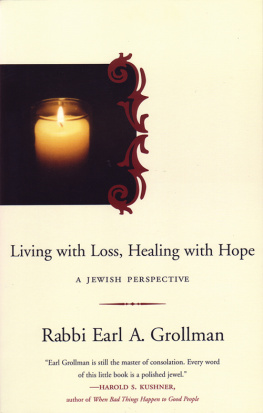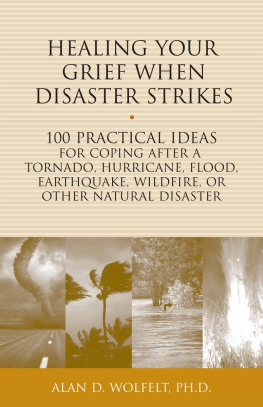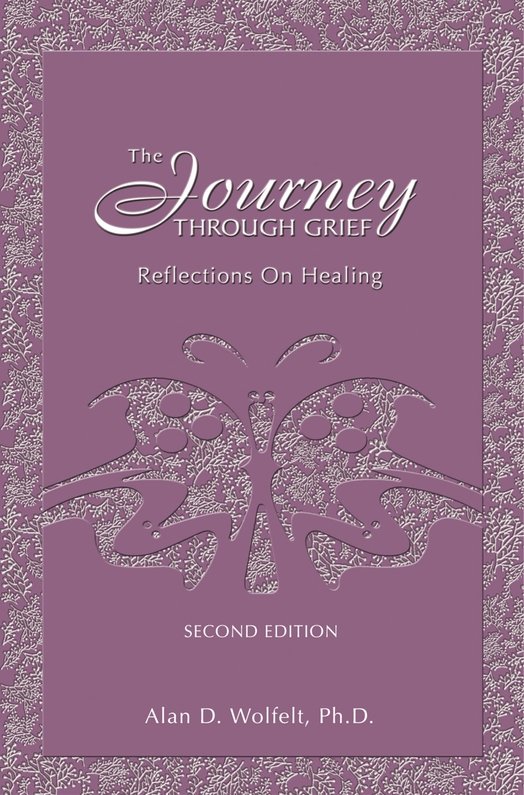Understanding Your Grief: Ten Essential Touchstones for Finding Hope and Healing Your Heart
THE JOURNEY THROUGH GRIEF: AN EPILOGUE
You may have heardindeed you may believethat your grief journeys end will come when you resolve, or recover from, your grief. But you may also be coming to understand one of the fundamental truths of grief: Your journey will never end. People do not get over grief. My personal and professional experience tells me that a total return to normalcy after the death of someone loved is not possible; we are all forever changed by the experience of grief.
Reconciliation is a term I find more appropriate for what occurs as the mourner works to integrate the new reality of moving forward in life without the physical presence of the person who died. With reconciliation comes a renewed sense of energy and confidence, an ability to fully acknowledge the reality of the death and a capacity to become re-involved in the activities of living. There is also an acknowledgment that pain and grief are difficult, yet necessary, parts of life.
As the experience of reconciliation unfolds, you will recognize that life is and will continue to be different without the presence of the person who died. Changing the relationship with the person who died from one of presence to one of memory and redirecting ones energy and initiative toward the future often takes longerand involves more hard workthan most people are aware. We, as human beings, never resolve our grief, but instead become reconciled to it.
We come to reconciliation in our grief journeys when the full reality of the death becomes a part of us. Beyond an intellectual working through of the death, there is also an emotional and spiritual working through. What had been understood at the head level is now understood at the heart level.
In reconciliation, the sharp, ever-present pain of grief gives rise to a renewed sense of meaning and purpose. Your feeling of loss will not completely disappear, yet they will soften, and the intense pangs of grief will become less frequent. Hope for a continued life will emerge as you are able to make commitments to the future, realizing that the person you have given love to and received love from will never be forgotten. The unfolding of this journey is not intended to create a return to an old normal but the discovery of a new normal.
GROWTH THROUGH GRIEF: THE POSSIBILITIES
Happily, you may well also find that you are growing emotionally and spiritually as a result of your journey. But before I say more about growth through grief, a caveat: Though grief can indeed transform into growth, I would never seek out the pain of grief in an effort to experience growth. While our greatest gifts often come from our wounds, these are not wounds we masochistically go looking for. When others offer ill-timed, misstated comments like Youll grow from this, our right to hurt is taken away from us. We must allow all mourners to discover on their own the ways in which they will growthrough grief, perhaps gently encouraging them at times but never taking away their needindeed their rightto be angry, scared or deeply sad.
Growth means a new inner balance with no end points
While you may do the work of mourning to recapture in part some sense of inner balance, it is a new inner balance. My hope is that the term growth reflects the fact that we never reach some end point in our grief journeys.
No one ever totally completes the mourning process. People who think you get over grief are often continually striving to pull it all together, while at the same time feeling that something is missing. How would you describe your new inner balance?
Growth means exploring our assumptions about life
Growth in grief is a lifelong process of exploring how death challenges us to look at our assumptions about life. When someone loved dies, we naturally question the meaning and purpose of life. Religious and spiritual values also come under scrutiny. We might ask questions like, How can God let this happen? or Why did this happen now-to me? Many times we also ask ourselves why we should go on living.
Finding answers to these questions is a long and arduous process. But ultimately, exploring our assumptions about life after the death of someone loved can make those assumptions richer and more life-affirming. We oftenachieve a greater understanding of our spirituality, for example. We may discover a shift in life priorities and find a personal, inner peace we lacked before. For me, growth in grief is a lifelong process of exploring how death challenges us to look at our assumptions about life. How have your assumptions been changed?
Growth means utilizing our potentials
The encounter of grief reawakens us to the importance of utilizing our potentialsour capacities to mourn our losses openly and without shame, to be interpersonally effective in our relationships with others, and to continue to discover fulfillment in life, living and loving. Rather than dragging us down, loss often helps us grow. Loss seems to free the potential within. Then it becomes up to us as human beings to embrace and creatively express this potential. Have you found yourself using your potential in new ways?
Obviously, not every mourner experiences the kind of actualizing growth I have just described. Unfortunately, some people do not seem to know how to grow. They remain emotionally, physically and spiritually crippled for years. Instead of being changed in a positive way, they have gone backward or regressed. The forces of grief have seemed to work against them instead of for them.
In fact, in our mourning-avoiding culture, more and more people are invited not to grow in their grief journeys. Our challenge as mourners, then, is to fight this cultural tendency and instead discover how this experience can enrich our lives. We must learn to free ourselves to grow and live until we die.
A FINAL WORD TO THOSE WHO JOURNEY
It is important to me that you know my thoughts and prayers are with you. Yes, it takes courage to face your real feelings. It takes patience to discover life again. And it takes both faith and self-compassion to believe that experiencing the six needs explored in this book will help your pain soften over time.
I believe we are well served to remember those familiar words, Blessed are those who mourn, for they shall be comforted and How happy are those who know what sorrow means, for they will be given courage and comfort.
Sometimes it is difficult to see mourning as an asset in life. Yet, the capacity to love requires the necessity to mourn. We must come to understand that we are not being self-indulgent but instead self-sustaining.
I truly hope this book has served as a loving companion to you. I believe you can and will go on to discover renewed meaning and purpose in your life, in your living and in your loving!
Just one more thing: Right now, take a moment to close your eyes, open your heart, and remember the precious smile of the person who died.

